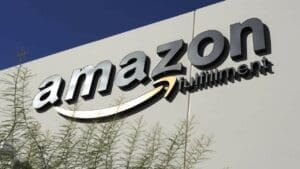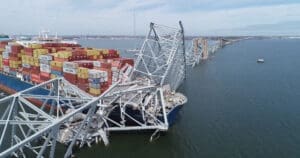 July 4th, or the Fourth of July as its known colloquially, is a day for barbecues, fireworks, parades, and for 16 of the last 17 years, watching Joey Chestnut decimate the competition at the Nathan’s Famous International Hot Dog Eating Contest. The lone blip in the last 17 years was in 2015 when Matt Stonie ended Chestnut’s 8-year winning streak. Well, like the saying goes, all good things must come to an end. This year’s hot dog eating contest will be the first without Chestnut since 2005, as the world champion has been banned from the contest. Organizers of the Nathan’s Famous Hot Dog Eating Contest said Tuesday that they banned Chestnut from the July 4th event after he signed an endorsement deal with Impossible Foods, which recently launched a new marketing campaign specifically targeting meat-eaters. Major League Eating (MLE), the organization that oversees professional competitive eating said in a statement that Chestnut had “chosen to represent a rival brand” rather than compete in its storied Coney Island contest. But fear not, as Netflix immediately jumped into fray and lined up a hot dog eating contest pitting Chestnut against his biggest rival: Takeru Kobayashi. The two are set to compete in a winner-take-all hot dog eating contest that will stream live on Netflix on Labor Day. And now on to this week’s logistics news.
July 4th, or the Fourth of July as its known colloquially, is a day for barbecues, fireworks, parades, and for 16 of the last 17 years, watching Joey Chestnut decimate the competition at the Nathan’s Famous International Hot Dog Eating Contest. The lone blip in the last 17 years was in 2015 when Matt Stonie ended Chestnut’s 8-year winning streak. Well, like the saying goes, all good things must come to an end. This year’s hot dog eating contest will be the first without Chestnut since 2005, as the world champion has been banned from the contest. Organizers of the Nathan’s Famous Hot Dog Eating Contest said Tuesday that they banned Chestnut from the July 4th event after he signed an endorsement deal with Impossible Foods, which recently launched a new marketing campaign specifically targeting meat-eaters. Major League Eating (MLE), the organization that oversees professional competitive eating said in a statement that Chestnut had “chosen to represent a rival brand” rather than compete in its storied Coney Island contest. But fear not, as Netflix immediately jumped into fray and lined up a hot dog eating contest pitting Chestnut against his biggest rival: Takeru Kobayashi. The two are set to compete in a winner-take-all hot dog eating contest that will stream live on Netflix on Labor Day. And now on to this week’s logistics news.
![]()
![]() Supply chain software vendor Descartes Systems Group announced it has bought BoxTop Technologies Limited for $13 million, marking its 32nd acquisition since 2015. Founded in 1995, BoxTop is a British provider of shipment management solutions—including freight management software—for small- to mid-sized logistics services providers (LSPs). BoxTop helps LSPs digitize their operations and connect to the wider logistics community to manage the lifecycle of shipments. LSPs use the BoxTop platform to manage the secure and efficient movement of goods from quoting through to routing, booking, and final delivery. Before the acquisition, BoxTop had already been an existing partner of Descartes, leveraging the Descartes Global Logistics Network (GLN) to help their clients gain visibility into shipments across multiple modes of transportation and to complete electronic customs filings.
Supply chain software vendor Descartes Systems Group announced it has bought BoxTop Technologies Limited for $13 million, marking its 32nd acquisition since 2015. Founded in 1995, BoxTop is a British provider of shipment management solutions—including freight management software—for small- to mid-sized logistics services providers (LSPs). BoxTop helps LSPs digitize their operations and connect to the wider logistics community to manage the lifecycle of shipments. LSPs use the BoxTop platform to manage the secure and efficient movement of goods from quoting through to routing, booking, and final delivery. Before the acquisition, BoxTop had already been an existing partner of Descartes, leveraging the Descartes Global Logistics Network (GLN) to help their clients gain visibility into shipments across multiple modes of transportation and to complete electronic customs filings.

 Amazon has persuaded a Seattle federal judge to dismiss a proposed consumer class action that accused the ecommerce giant of failing to meet its stated “guaranteed” delivery for some purchases. U.S. District Judge Kymberly Evanson ruled, opens new tab on Friday that she would dismiss the case for now, but would allow the Amazon customer to file an amended lawsuit by July 8. Evanson said the customer had not shown how Amazon’s delivery practices would violate Washington’s consumer protection law. Scott Gilchrist, an attorney for the plaintiff, in a statement said they were disappointed by the court’s ruling and “considering all options” to advance the case. The lawsuit said Amazon met a delivery date for a purchase but missed the four-hour window the consumer picked for their package’s arrival.
Amazon has persuaded a Seattle federal judge to dismiss a proposed consumer class action that accused the ecommerce giant of failing to meet its stated “guaranteed” delivery for some purchases. U.S. District Judge Kymberly Evanson ruled, opens new tab on Friday that she would dismiss the case for now, but would allow the Amazon customer to file an amended lawsuit by July 8. Evanson said the customer had not shown how Amazon’s delivery practices would violate Washington’s consumer protection law. Scott Gilchrist, an attorney for the plaintiff, in a statement said they were disappointed by the court’s ruling and “considering all options” to advance the case. The lawsuit said Amazon met a delivery date for a purchase but missed the four-hour window the consumer picked for their package’s arrival.
A U.S. appeals court on Monday rejected a bid by Uber and subsidiary Postmates to revive a challenge to a California law that could force the companies to treat drivers as employees rather than independent contractors who are typically less expensive. An 11-judge panel of the 9th U.S. Circuit Court of Appeals in San Francisco upheld a lower court ruling that said Uber failed to show that the 2020 state law known as AB5 unfairly singled out app-based transportation companies while exempting other industries. Uber in a statement on Monday said the ruling would not change the status of its relationships with its drivers, who are considered to be contractors under a 2020 ballot initiative known as Proposition 22. The fate of Prop 22 is being weighed in a separate case at the state’s top court, which last month heard arguments from a labor union and four drivers contending the ballot measure was unconstitutional.

 The main channel to the Port of Baltimore has fully reopened, nearly 11 weeks after a cargo ship lost power and slammed into the Francis Scott Key Bridge, shutting down one of the nation’s busiest waterways. Six construction workers were killed in the March 26 disaster, when a Singaporean containership leaving the port lost power around 1:30 a.m. and struck a bridge support column. A large section of the 1.6-mile span crumpled into the Patapsco River. Its wreckage blocked most of the port’s 700-foot wide channel. The U.S. Army Corps of Engineers said Monday that the channel has been restored to its original dimensions and the riverbed was certified as safe for transit. Underwater salvage crews, coordinated by several agencies, worked to separate and remove tons of bridge debris from the harbor floor, about 50-feet below the surface. Crews pulled the final steel truss—a slab of concrete, cables and steel rebar—from Fort McHenry Federal Channel last week, clearing the way for the port’s full reopening, officials said. Tugboats transported the containership, called the Dali, to a local marine terminal last month.
The main channel to the Port of Baltimore has fully reopened, nearly 11 weeks after a cargo ship lost power and slammed into the Francis Scott Key Bridge, shutting down one of the nation’s busiest waterways. Six construction workers were killed in the March 26 disaster, when a Singaporean containership leaving the port lost power around 1:30 a.m. and struck a bridge support column. A large section of the 1.6-mile span crumpled into the Patapsco River. Its wreckage blocked most of the port’s 700-foot wide channel. The U.S. Army Corps of Engineers said Monday that the channel has been restored to its original dimensions and the riverbed was certified as safe for transit. Underwater salvage crews, coordinated by several agencies, worked to separate and remove tons of bridge debris from the harbor floor, about 50-feet below the surface. Crews pulled the final steel truss—a slab of concrete, cables and steel rebar—from Fort McHenry Federal Channel last week, clearing the way for the port’s full reopening, officials said. Tugboats transported the containership, called the Dali, to a local marine terminal last month.
Monthly inbound cargo volume at the nation’s major container ports is expected to reach its highest level in nearly two years this summer, according to a report from the National Retail Federation (NRF) and Hackett Associates. The surge is good news for retailers and freight carriers, but it is also expected to put extra strain on global supply chains that are already working to handle stresses such as port congestion and regional geopolitical violence. If the forecast plays out as expected, it would produce an expected seven-month string of import levels above 2 million twenty-foot equivalent units (TEUs) – a level reached only twice since October 2022. The trend is partly due to changes in the annual “peak season” for shipping. By the numbers, U.S. ports covered by Global Port Tracker handled 2.02 million TEU in April, the latest month for which final numbers are available. That was up 4.6% from March and up 13.2% year over year, and was the highest number since 2.06 million TEU last October.
Truck transportation jobs took a significant dip in May, according to the monthly employment report from the Bureau of Labor Statistics, and now are at the level where they were in November. Seasonally adjusted jobs fell by 5,400 from April, to 1,550,100, according to the BLS. That is exactly the same as in November. The decline is the third-largest since jobs began rising in 2020 after the tremendous drop first reported in April 2020. But the biggest decline post-pandemic was driven by the closure of Yellow Corp., when the BLS report for August noted a drop of 31,600 jobs. May’s decline of 5,400 jobs is behind only that and the 5,700 jobs lost in September 2022. With the Yellow losses and the recent declines, the May total of 1,550,100 is now 24,600 jobs below the July 2023 figure of 1,574,700 jobs, right before Yellow declared bankruptcy and began ending the careers of thousands of drivers at Yellow. The total is 29,600 jobs fewer than it was a year ago.

 And finally, the Hostess brand, manufactured by parent company J.M. Smucker, has launched a seasonal marketing campaign that is tapping autonomous drones to deliver “joy-filled” packages. Through July 2, the company is encouraging consumers with the name “Joy” as part of their first, middle, or last name to enter a contest where they can win a package filled with Hostess brand snacks and swag, including Powdery Donettes mini donuts and Twinkies snack cakes. One hundred entrants will receive a package by drone delivery. Hostess is working alongside Drone Up for the initiative and will be delivering these packages in select cities in Arizona, Arkansas, Florida, Texas, Utah, and Virginia. Any other winning submissions will be delivered by mail.
And finally, the Hostess brand, manufactured by parent company J.M. Smucker, has launched a seasonal marketing campaign that is tapping autonomous drones to deliver “joy-filled” packages. Through July 2, the company is encouraging consumers with the name “Joy” as part of their first, middle, or last name to enter a contest where they can win a package filled with Hostess brand snacks and swag, including Powdery Donettes mini donuts and Twinkies snack cakes. One hundred entrants will receive a package by drone delivery. Hostess is working alongside Drone Up for the initiative and will be delivering these packages in select cities in Arizona, Arkansas, Florida, Texas, Utah, and Virginia. Any other winning submissions will be delivered by mail.
That’s all for this week. Enjoy the weekend and the song of the week, Hot Dog Buddy Buddy by Bill Haley & His Comets.




















